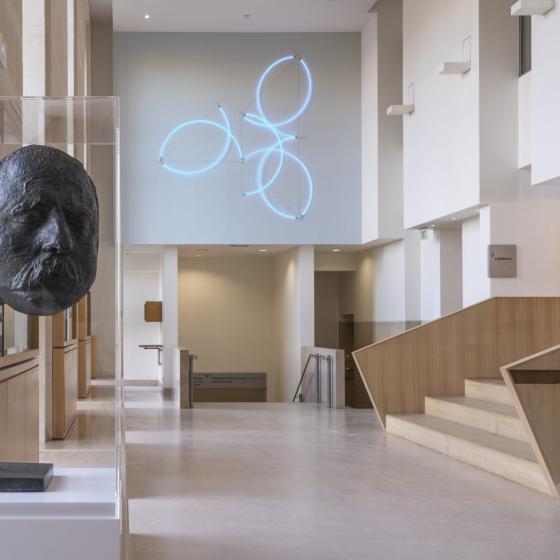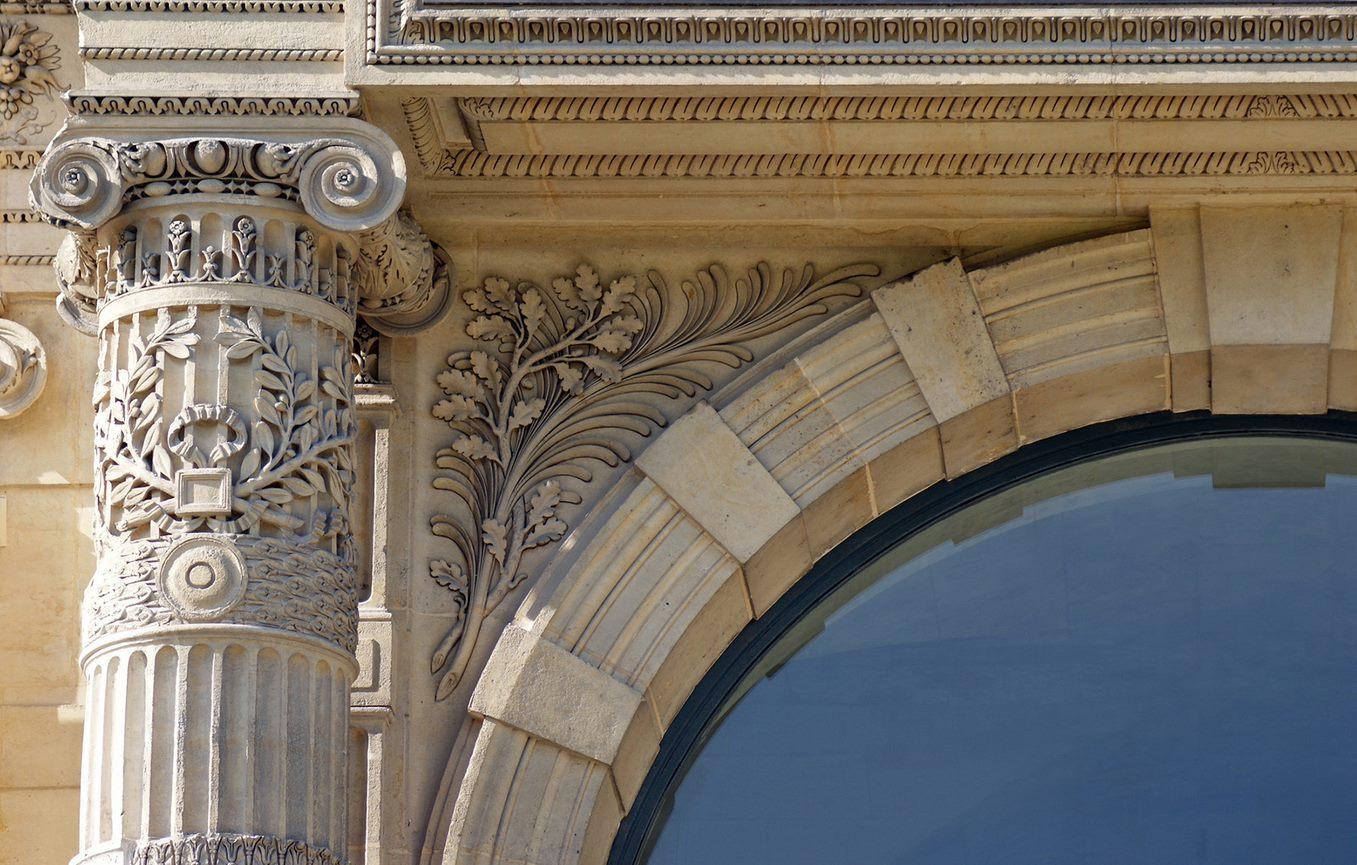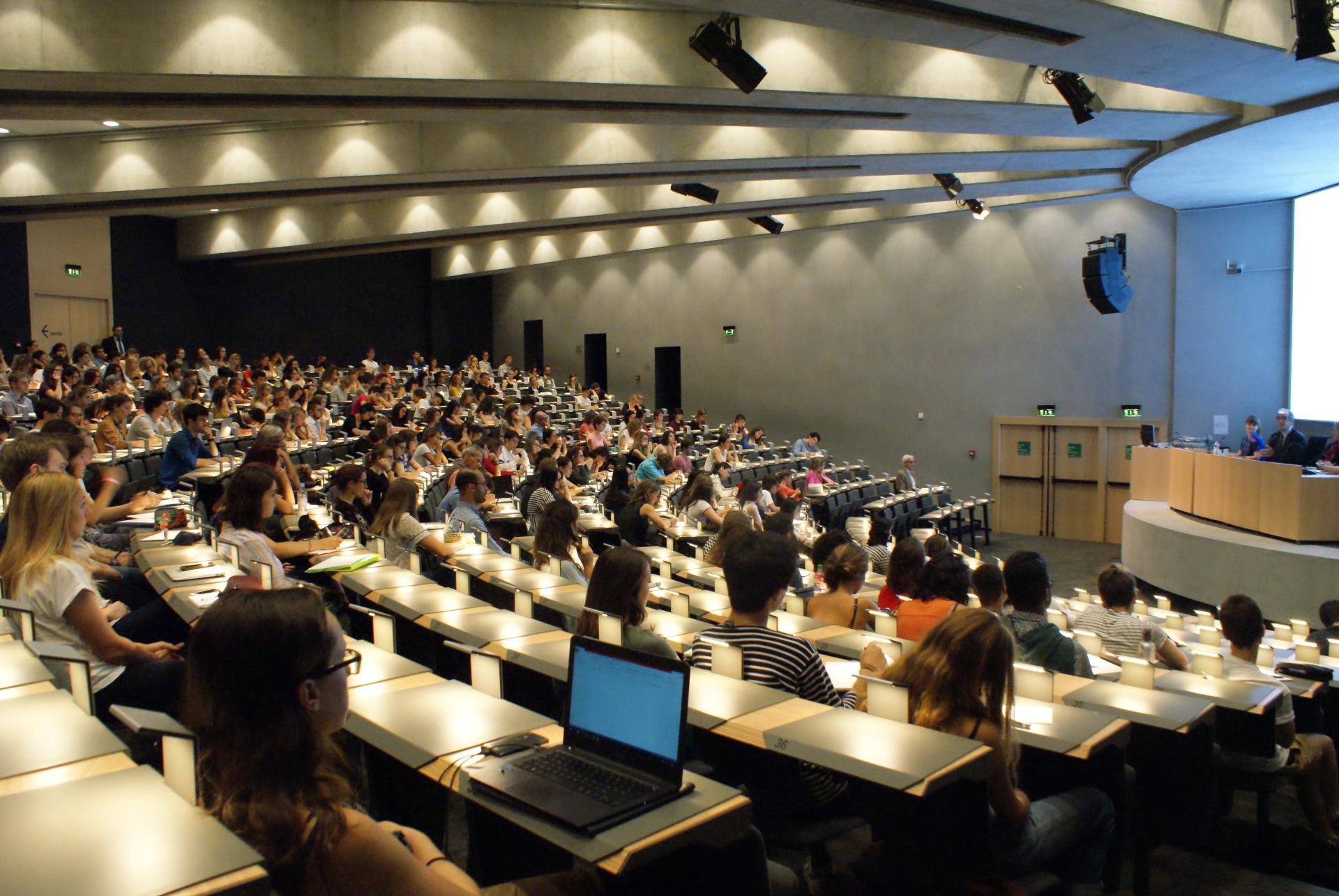
Second year
Back to school day
Thursday 7 September 2023 9AM À Paris, en amphiIntroduction
The second year of the Ecole du Louvre’s undergraduate programme, known as the first cycle, focuses essentially on classes on Middle-Age, Renaissance, India, Islam and Byzantium art, but also pre-Columbia, China and Japan art. In addition to this are introductory classes on iconography, museology and creative techniques. Students can also take specialising classes and possible optional classes.
Classes
- medieval art
- Renaissance art
- arts of India
- Islamic arts
- art of Byzantium
- pre-Columbian arts
- arts of China and Japan
- iconography
- introduction to museology
- creative techniques
- Fontainebleau castle
- Vincennes castle
- city of architecture and heritage
- National Museum of the Middle Ages (Cluny)
- Louvre Museum
- Quai Branly-Jacques-Chirac museum
- Guimet museum
- National Renaissance Museum (Ecouen)
- Saint-Denis basilica
- Holy Chapel
- BNF medal cabinet
Below is a list of specialising classes available in the first cycle:
- 20th century art
- African art history
- Anthropology of heritage
- Archaeology of Gaul
- Archaeology of pre- and proto-historic Europe
- Oriental archaeology
- Architecture, decor and furnishings of grand residences
- Art and archaeology of India and the Indianized countries of Asia
- Contemporary art
- Art history and archaeology of the Etruscan and Italic world
- Art history and archaeology of the Roman world
- Arts of Oceania
- Arts of the Americas
- History of Western architecture
- History of art in the 19th and early 20th centuries
- History of Egyptian art and archaeology
- History of fashion and clothing
- History of painting (French school)
- History of painting (foreign schools)
- History of photography
- History of medieval, Renaissance and modern sculpture
- History of Greek art and archaeology
- History of prints
- History of the arts of Byzantium and Christianity in the East
- History of the arts of the Far East
- History of Islamic art
- History of the decorative arts
- History of cinema
- History of drawing
- Military heritage and archaeology
- Natural, technical and industrial heritage
Below is a list of the optional classes available in the first cycle:
Foreign language teaching at the school focuses on four modern languages, as well as French as a foreign language for non-French speaking students. Organised bat different levels, it aims to enable speaking and written practice of the languages taught in the field of art history, civilisations and heritage. The modern language the student chooses must be retained throughout the duration of the first cycle. It is, however, possible on a case-by-case basis to grant exemptions to students whose professional project would justify learning a language different from that which was initially chosen.
Courses can be taught in
- English from level A1 to level C1 (remote classes);
- German, from complete beginners to C1 level (remote classes);
- Spanish, from level A2 to level C1 (remote classes);
- Italian, from complete beginners to C1 level (remote classes);
- French as a foreign language, from level B2 to level C1 (in-person classes);
- Arabic, in partnership with INALCO, is offered only to second-year students. It can be continued in the third year.
More information: [email protected]
More information
Exams
First-cycle students are assessed within a credit (ECTS) scheme. Classes are put into groups of tests (teaching units called EUs), within modules which constitute “semester equivalents”. This evaluation sees credits distributed to students, 30 per semester.

How to apply?
Candidates to the Ecole du Louvre’s undergraduate programme, referred to as the first cycle, have three ways to apply. There is an entrance exam (with pre-selection on Parcoursup, a national platform for students to apply for higher education spaces) to join the first year, the bank of literary exams (Banque d’epreuves litteraires [BEL], which is a common entrance exam to the Ecole Normale Superieure schools in France but also allows students to join partner higher education establishments) to join the third year and possibility to join the second year of the school’s third cycle if previous education is equivalent to the school’s first and second cycles.

